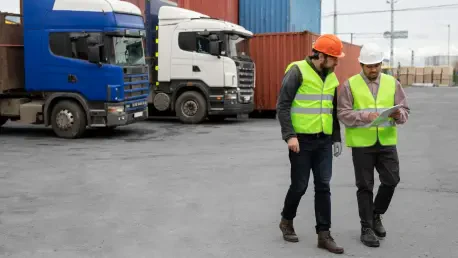Amid rising tensions following immigration enforcement activities, Carrier411 made a significant decision by ending its relationship with a Mexican staffing agency. This move comes in an era characterized by rapid technological advancements and evolving consumer expectations within the trucking and staffing industry. The competitive landscape necessitates that companies adapt quickly to regulatory and societal changes to maintain their market positions.
Overview of the Trucking and Staffing Industry
The trucking and staffing industry forms a crucial backbone of the global economy, supporting the movement of goods and providing employment solutions across various sectors. As the world becomes more interconnected, the industry continues to evolve, with logistics technology playing an increasing role in operational efficiency. The sector comprises various segments, including freight transportation, logistics management, and staffing services, all influenced by digital innovations and shifting market dynamics. In recent years, regulatory frameworks have also begun to shape industry practices significantly, compelling companies to adopt compliance measures proactively.
Current Industry Trends
Emerging Influences
The trucking and staffing sectors are currently experiencing significant transformations driven by technology and changing consumer preferences. Automation, digital platforms, and improved supply chain visibility are some of the emerging trends reshaping the landscape. Companies leverage data analytics to optimize routes and enhance service delivery, while consumers expect faster, more reliable services. Additionally, there is a growing focus on sustainability and reducing carbon footprints, prompting firms to explore eco-friendly solutions.
Market Data and Projections
Recent data indicates sustained growth in the industry, with projections of continued expansion due to increased demand for logistics solutions. Performance indicators show that firms investing in technology and innovation are outperforming their peers. The market is expected to adapt further as new opportunities arise, particularly in the area of on-demand logistics and staffing services, forecasted to gain traction in upcoming years.
Challenges and Complexities in the Industry
Despite its growth potential, the trucking and staffing industry faces numerous challenges that hinder progress. Technological integration remains a significant barrier, with many organizations struggling to update outdated systems. Regulatory requirements can also be daunting, especially those related to labor laws, environmental standards, and cross-border operations. Companies must develop strategic approaches to navigate these complexities, such as embracing innovation and fostering partnerships to stay competitive.
Regulatory Landscape and Its Impact
The regulatory landscape significantly impacts the trucking and staffing sectors because it dictates how businesses operate daily. Compliance with safety standards, labor laws, and environmental regulations requires constant vigilance. Recent changes in immigration policies have further complicated matters, influencing staffing practices and operational strategies. Companies must remain agile, adapting to legal shifts while ensuring security and transparency in their practices.
Future Directions in Trucking and Staffing
The industry’s future lies in embracing technological advancements, innovative solutions, and evolving consumer expectations. Connectivity and automation stand at the forefront, with autonomous vehicles and smart logistics systems poised to redefine traditional practices. Market disruptors like digital marketplaces could alter supply chain management, demanding that firms stay ahead through continuous improvement and customer-centric approaches. Additionally, global economic conditions will play a pivotal role in determining growth trajectories, necessitating flexible and adaptive strategies.
Conclusion and Recommendations
Carrier411’s strategic recalibration amidst societal and regulatory shifts highlights the importance of dynamic decision-making in the trucking and staffing industry. Companies must proactively address emerging trends and challenges, leveraging technology and innovation to enhance efficiency and meet consumer demands. Embracing future opportunities with a focus on sustainability and compliance can unlock new growth avenues. Building resilience through strategic partnerships and continuous adaptation will be crucial for success in this evolving landscape.









